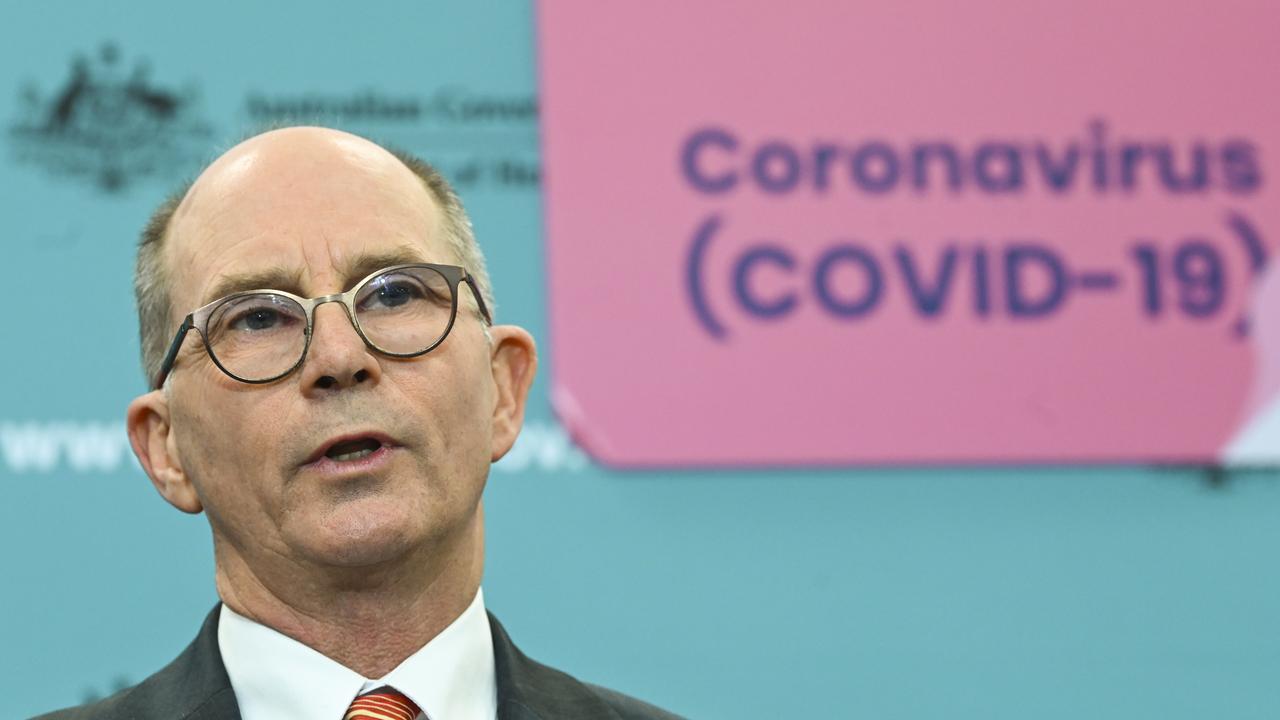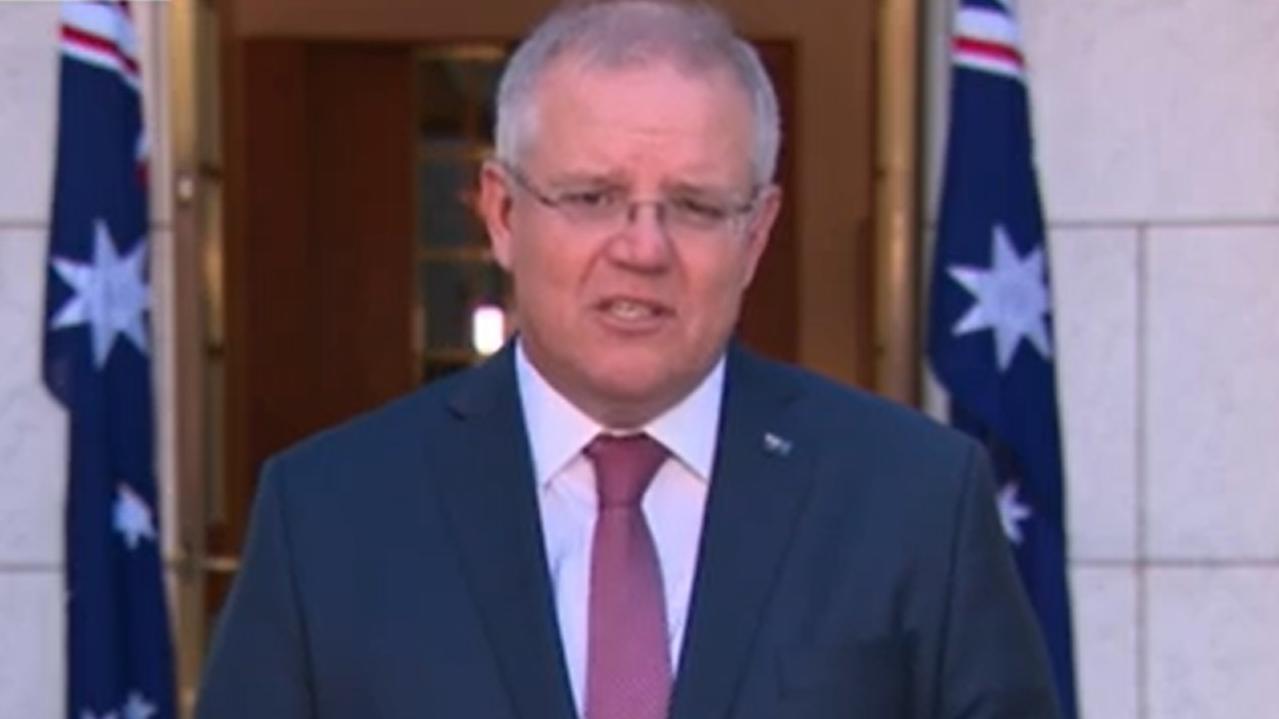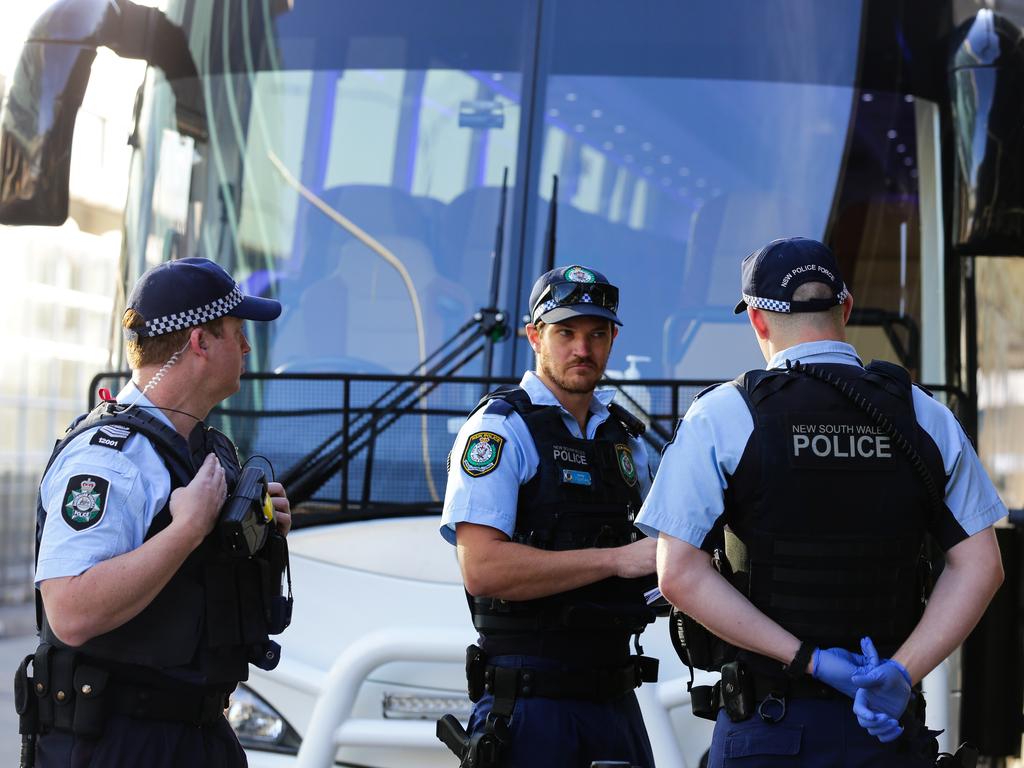Australia’s coronavirus exit plan to be discussed on Thursday
There’s hope coronavirus restrictions could be eased sooner rather than later, but lifting the lockdown won’t be considered until a crucial period has passed.

Australia continues to hint that it could ease coronavirus restrictions in weeks rather than the six-month marathon we’d previously been warned about.
But as politicians urge Australians to be patient, there’s still hope we could see some sort of return to normal life sooner rather than later.
Addressing media this afternoon, Australia’s deputy chief medical officer Paul Kelly said he could indeed see the nation’s strict virus measures easing sooner than the flagged September deadline, but that it wouldn’t be reassessed until a crucial period had passed.
“I think the six months is an indicative time. That was given by the Prime Minister early on
in relation to this to really stress that this is not a short-term thing. This is not a sprint. This is a marathon,” Prof Kelly said.
“There may well be during that period some opportunity because we have got on top of this so far and flattened the curve in relation to new cases in Australia. There may by some opportunity to rollback some of the restrictions.
“But at the moment we have to stay at course and the six months is an indicative time which we get us through winter, through the usual flu season and then maybe a time to reassess. But at the moment that’s how it is.”
Australia’s approaching flu season has long been flagged as a challenge for the nation’s health system as the COVID-19 pandemic continues to spread, and as Prof Kelly suggested, could even be one of the tests that determines when tough lockdown laws are lifted.

Prof Kelly said six months was “an incredibly long time”, and that he couldn’t say “where we’re going to be at that time”, but appeared hopeful while acknowledging Australia’s early success in controlling the spread.
Australia’s states and territories all reported few confirmed cases over the Easter long weekend and the Northern Territory has gone more than a week without a single case of coronavirus.
The promising statistics mean the National Cabinet will be briefed on Thursday about potential virus scenarios and will discuss when restrictions could be eased.
Speaking on Sunrise this morning, Prime Minister Scott Morrison said Australia was “many weeks” away from considering an end to restrictions.
“The National Cabinet is in the process now of looking ahead and we have done a lot of work over the last week or so in particular to look at the sort of prerequisites (to ease restrictions)...Things that need to happen before you can start considering that,” Mr Morrison said.
“A lot of scientific work is being put into that and we have looked at the experiences of other countries and so we are hopeful that at some point we can move from the phase we are currently in, to a new phase, but I do want to caution Australians that we're not in that phase yet we're many weeks away I think from being in a phase like that.
“We’ve seen what happened Singapore, in Sweden recently. You take your eye off of this thing and it gets away from you. It writes its own rules.”

Chief Medical Officer Brendan Murphy seemed slightly more optimistic about when restrictions could be relaxed but said undetected community transmission still posed a massive risk.
“The scale of measures at the moment are something that we clearly do have to review ... but it’s not now, it’s within the next few weeks,” he told ABC radio.
“I think we need to look at all of the data, look at our preparedness, and the national cabinet will be making a lot of decisions about what, if anything, can be relaxed in the coming weeks.”
Earlier, Mr Morrison said Australia was still working on getting its health system to “an even higher level response” and to maintain having “one of the strongest testing regimes in the world”.
“It would need to be stronger still to ensure that we can stay on top of any outbreak in the future,” he said.
“The immediate response capacity to outbreaks, wherever they might come, we've got to be able to slap down on these things very hard if we're to look at easing of restrictions. We're looking how that can be achieved.”
Despite the optimism, another expert maintains Australia should keep strict measures in place until at least the end of winter.
“If you look at any respiratory virus, they transmit much more readily in winter,” Australian National University Professor Peter Collignon told AAP.
“All the factors aren’t clear but what’s beyond doubt is viral infections, respiratory infections are more common in winter and early spring.”
Australia’s coronavirus cases took a nosedive after the Government shut borders, forced returning international travellers into hotel quarantine and ordered all non-essential businesses to close.

Prof Collignon said similar measures would need to stay in place until after winter if Australia hoped to be coronavirus-free.
“All those things that are pretty drastic and put a million people out of work, we’re going to have to continue mostly till the end of winter,” he said.
“Unless something magically changes, we’re going to have to do more than we’ve done before if we want to keep the numbers of this virus down.”
Earlier, Tourism Minister Simon Birmingham said there were no guarantees international flights would resume by December.
He is encouraging people to take domestic holidays instead once the pandemic subsides.
Treasurer Josh Frydenberg also said Australia’s border situation was still up in the air.
“It is unrealistic to expect that those border restrictions will be lifted any time soon,” he said.
“But, again, if you look at the overseas experience, countries like Japan and Singapore saw themselves as having quite a deal of success in countering the spread of the coronavirus only then to see a second wave and heavier restrictions to come back in.
“Sweden is one country that it took a more relaxed approach to major gatherings in public spaces. Yet now, there's more than 600 deaths in Sweden from the coronavirus and they are a country with less than half our population yet they have got more than 10 times the number of coronavirus deaths.
“So, I think this is a very fluid situation, a very difficult situation and we need to continue to take the medical advice.”
Prof Kelly said that while six months was “an indicative time”, Australia was “in a much better place than I thought we would be at this point”.
“We need to take on board our improving modelling, our improving epidemiological understanding of this virus,” he said. “We will look at the research that’s coming in relation to better treatments, to preventive treatments and to vaccines and all of these things will be really important to take into account.
“As we’ve seen right throughout the time since we’ve first found out about the new virus in early January, a day is a long time in this fight against the pandemic.”



